- Home
- Julian Barnes
Before She Met Me Page 7
Before She Met Me Read online
Page 7
‘You were very kind to Graham.’
‘Didn’t do much. Just made up some stuff, as far as I can remember, along the lines of buying himself a new hat when he felt glum. Nearly told him all men really have the curse, but I didn’t think he’d swallow it.’
‘Well, he seemed calmer when he got home. He seemed to appreciate it.’
‘Any time.’
Jack was standing in front of her, brown and squat, rocking backwards on his heels. He always looked a bit Welsh, she thought, though he wasn’t. He was wearing a brown tweed suit, an old leather waistcoat and a workman’s shirt; the gold stud threaded through the collar band was strictly for decoration. Ann had often wondered about the way Jack presented himself to the world: was he dressing down, in pursuit of a remembered or imagined yeoman simplicity; or was he dressing up, in pursuit of artistic carelessness? She had always been fobbed off when she’d asked serious quessions about Jack’s past; but didn’t mind. This time, however, she’d come to discuss her own past.
‘Jack,’ she said slowly, ‘I’ve decided we never had an affair.’
He was going to laugh, but noticed how serious she was looking. Instead, he took his hands out of his pockets, brought his heels together and said sharply,
‘Sah!’
‘It came up last night. We were … well, Graham was listing some of my old boyfriends to me. He was a bit drunk. We were both a bit drunk. We seem to get drunk more often nowadays. Then he started crying, drinking and crying. I asked him what the matter was and he said the name of one of my old boyfriends. He just said “Benny”. Then he took another swig of wine and said, “Benny and Jed”. Then he took another swig and said, “Benny and Jed and Michael”. It was awful.’
‘Doesn’t sound much fun.’
‘And each time he took a swig he’d say the names, and each time he said the names he’d add a new one. And then he’d cry a bit more and take another swig.’ Ann reached for a tissue at the memory. ‘And then, after he’d been going for a while he suddenly added your name.’
‘And that was a surprise?’
‘Completely. At first I thought you must have told him about us when he came to see you, but then I thought that if you had, he wouldn’t have come home so cheerful. So I just said, “No, Graham”, quite firmly.’
‘Dead right, too.’
‘I felt a bit bad, because I don’t think I’ve lied to him before. I mean, the usual stuff about the tubes being held up or whatever, but nothing … like that.’
‘Well, you know my rule about affairs: maximum deception, minimum lying, maximum kindness. Don’t see why it shouldn’t apply to ones in the past as well.’
‘So I’m afraid I said No. I was sure you’d understand.’
‘Of course.’ In fact, Jack was a bit hurt; it felt as it did when someone turned you down, which was silly, though in a way accurate. ‘No problem. Pity about that chapter of the old autobiography, though. Would have bumped up the advance.’
‘I’m sorry to rewrite your past for you.’
‘Don’t bother, I’m always doing it myself. Every time I tell a story it’s different. Can’t remember how most of them started off any more. Don’t know what’s true. Don’t know where I came from.’ He put on a sad look, as if someone had stolen his childhood. ‘Ah well, just part of the pain and pleasure of the artist’s life.’ He was beginning to fictionalize his fictioneering already; Ann smiled. ‘But what about friends?’
‘Well, it hasn’t ever arisen so far, and a lot of those friends are in the past.’
‘Hm. This may sound a trifle ungallant, but can you remind me when it was that we didn’t have an affair? ’74? ’73?’
‘Autumn of ’72 to summer of ’73. And … and once or twice subsequently.’
‘Ah yes. I remember once or twice.’ He smiled. Ann smiled back, but with less confidence.
‘I might tell Graham sometime—when he’s … over … this. I mean, if it’s relevant, or if he asks or something.’
‘And then my past will be restored to me. O frabjous day, calloo, callay. And what is the current prognosis? How is the little Othello?’
Ann was hurt by Jack’s frivolity of tone.
‘He’s having a bad time. It may seem ludicrous to you, and it sometimes seems it to me, but he’s having a bad time. I sometimes worry he doesn’t seem to think about anything else. At least he’s got his work.’
‘Yes, that’s a good thing.’
‘Except that the vacation’s coming up.’
‘Well, keep him occupied. Take him off somewhere.’
‘We’re trying to find some country where I haven’t fucked someone,’ Ann said with sudden bitterness.
Jack kept any further thoughts to himself. He’d always been fond of Ann, even when, in what he now knew to be the summer of 1973, they’d fallen out over some self-indulgent indiscretion of his, some bit of double-parking. He always thought of her as a no-shit girl; maybe not sparky enough for his taste, but definitely a no-shit girl. As he showed her out, he pushed his face at her for a kiss. She moved towards him, hesitated, and scraped her cheek along the side of his beard; as she moved away, Jack’s slightly wetted lips seemed to catch her ear.
Barbara was sitting on the sofa in her nylon housecoat, sipping at a cup of tea and brooding idly about Graham. She thought about him a little more often than in her view he deserved. The initial contempt had died down by now, and even resentment, that normally reliable emotion, no longer invaded her as it had for the first couple of years. This didn’t mean, of course, that she had in any way forgiven Graham, or liked him, or even ‘saw his point of view’—that thing which her feebler or more disloyal friends occasionally urged her to do. The same friends also suggested, in their bolder moments, that in some way she was just unlucky, that a certain percentage of marriages always went wrong, that it was nobody’s fault, that it was the way of the world. To them she would reply,
‘I’m still here. Alice is still here. The house is still here. Even the car is still here. All that has happened is that Graham has run off.’ This uncoloured rccital of fact usually sent enquirers off in the wrong direction:
‘So you … well, you might have him back if … if … ’
‘Of course not. Out of the question.’ And she meant it.
When she thought of Graham nowadays she saw two pictures of him. The first was of him rearing above her while they were making love on the night of their eighth wedding anniversary. On these nights, she always allowed Graham to keep the light on. He was crouched over her, pushing away in that rather half-hearted fashion which at any rate seemed to satisfy him, when she had caught him looking at her breasts. That was all right in itself, of course: it was—partly—why she allowed him to keep the light on in the first place. But it was the way he was looking at them. It wasn’t distaste, exactly, nor was it lack of interest that she saw in his face. It was more insulting than that: there was a scintilla of interest present, vaguely benign but humiliatingly small. She had seen that look before. It was the expression of a supermarket shopper who doesn’t need anything from the deep freeze but still peers briefly and ritually into it.
After that, on their wedding anniversaries, Barbara decreed that either they could have the light on and read a bit, or they could turn it off and make love. It was all the same to her, she implied. More frequently, in latter years, they had kept the light on.
Her other picture of Graham was also of him kneeling—this time half-askew on the stairs. How many years ago? She couldn’t remember. His left knee was on a higher step than his right knee; his bottom was sticking out. He was a third of the way up, yellow plastic brush in the right hand, matching pan in the left. He finished one step and moved on to the one above it. He was helping her out because he was on holiday and she was feeling tired. She looked up at his protruding bottom, at the yellow brush dabbing fussily at the carpet, and passed on through into the sitting-room. A couple of minutes later she returned to the hall. He had one stair left
to do. When he reached the top, he turned, a schoolboy expecting a gold paper star to be stuck at the foot of his homework.
‘If you start at the top,’ she had merely said, ‘and work downwards, then all the dust gets brushed down.’ For God’s sake, he was a teacher, an academic, I mean, he was meant to be bright, wasn’t he?
And half-askew as he was, looking back over his shoulder, he gave her another schoolboy look. It’s not my fault I cacked my pants, it’s not my fault. Don’t blame me. He looked (she had sought the playground word to fit) so weedy. Bill and Ben, Flowerpot Men, she thought; and in between them, as they clunked woodenly about on their strings, had been Little Weed. ‘Hallo, Weeeeeeeeeed,’ her friends used to say to one another at school. She had almost said it then.
Meanwhile, at home, Graham was taking a chicken out of the refrigerator. He slipped the bird from its polythene wrapping and placed it on the chopping board. Then he picked it up by the wings and shook it vigorously. The bag of giblets fell from the broad hole between the chicken’s legs, and Graham muttered,
‘It’s a boy.’
He pushed the bag aside and began jointing the chicken, with vigour rather than sense. He wrenched off the wings, then wound the legs round like propellors until, with a sudden crack, they gave way. He stared briefly at the skin on one of the legs. Bumpy and puckered: like the skin of his scrotum.
Graham took a cleaver from the magnetic rack above his head, and brought it down sharply on the chicken’s breastbone. He did this two or three more times until the carcase gave way. He chopped some more; the occasional bone splintered, and he tried half-heartedly to pick out the loose shards.
He tossed the ragged chunks of meat into a frying pan for browning. Then he picked up the cleaver again and moved the plastic bag of giblets back into the centre of the board. He stared at it for about a minute, then chopped down very hard several times, in quick succession, as if he had to get the blows in before the giblets panicked and ran off. As the bag split, blood jumped at his wrist, at the board, and at the blue-striped plastic apron that he wore. He dragged the entrails together again with the back of the cleaver and gave them several more swift cuts. He enjoyed this, in an uncomplicated way. He smiled. They said work was the best cure for sadness; but this was just as good.
Graham smiled again. He wondered if they made Jiffy bags with plastic linings.
Naturally, Ann didn’t tell Graham about her visit to Repton Gardens. When, the next afternoon, Jack opened his door and found Graham whispering fiercely,
‘I’m not really here—you won’t tell Ann, will you?’ he couldn’t resist a grin. First they start rewriting the past; now they’re rewriting the present as it happens. If only they could control the future they’d be able to have it all their own way.
‘Course not, matey.’
‘You’re not working?’
‘No. Just gussying up a review. Come along in. ’
They went into Jack’s chaotic sitting-room. Graham sat in the same chair as before; Jack made him coffee in the same mug as before, and then waited. Graham seemed keen to reproduce the same initial pause as well. Jack was less patient this time.
‘Did you take the tablets?’
‘Sort of. I mean you said three things. I’ve been doing about one and a half of them. I didn’t go and buy any new clothes; I didn’t think that would work.’ (Christ, Jack reflected, he had taken him seriously; not exactly a figure-of-speech merchant, our Graham). ‘And I suppose I was drinking a bit anyway, so I just carried on doing that, which counts as the half.’
Jack couldn’t remember what else he’d suggested; all he could recall was talking rather too openly about his first marriage.
‘And I’ve mas … I’ve mas … wanked.’ Graham looked so academic as he spoke the words.
‘You’ve mass-wanked? Good on you. Who are the lucky guys?’
Graham smiled wanly. Jack marvelled at how seriously people seemed to take sex; how much, how extraordinarily much it had them by the balls.
‘It’s not the end of the world, old cunty. I mean, I didn’t notice the whole shooting-match shift on its axis at whatever time it was you did it.’
‘I hadn’t done it for twenty years.’
‘Cheeeerist. Really? What was it like? Tell me. Please tell me. I always remember only too well.’
‘It was …’ Graham paused; Jack began a pre-emptive wince, ‘… enjoyable.’ Jack exhaled with relief in a vigorous, short mouth-plop.
‘Too right. So why the straight face?’
‘Oh, well, couple of things really. You see, I bought a magazine to do it with.’
‘So? Most of us have a library under our beds. Want to borrow some?’
‘Er, no thanks.’
‘Any time.’
‘And you see, I enjoyed it and I used a magazine, and I didn’t feel guilty towards Ann.’
‘And you’ve done it again?’ Jack felt like a zealous priest, prompting Graham towards total admission of his in this case sinless deeds.
‘Oh, yes, several times as a matter of fact.’
‘So you’ve found your touch again, eh? None of that shooting off over a double-page spread of a Nikon camera?’
Graham grinned in acknowledgment of one of his early difficulties.
‘But do you think I should feel guilty towards Ann?’
‘Nope.’
‘Do you think I should tell her?’
‘You haven’t?’
‘No.’
‘Well, I’d leave it until she asks. I mean, we all do it—read your Kinsey. Ninety-eight per cent have at some time, and 96 per cent are still doing so. Something like that, you know figures aren’t my strong point. But, well, only 2 per cent stop on marriage. It’s a fact, Graham.’
Jack wasn’t completely sure that it was a fact; but it was good enough for Graham’s purposes.
‘Do you think—I mean, do you think it will interfere with, with the rest of it all?’
Sometimes Graham’s questions weren’t phrased as clearly as they might be; Jack hoped his friend didn’t set examination papers as imprecisely as this.
‘No, absolutely not. Doesn’t affect it at all. Keeps it smoothly oiled.’
‘Can … ’ Graham halted again. ‘Can … they … ’ (Graham didn’t like using Jack’s collective pronoun; but couldn’t bear to specify Ann) ‘ … tell? I mean, whether you’ve been doing it?’
‘No way. No way. Not unless they’ve got a measuring glass up there or something. You know—calibrated cunt. I don’t think it registers cubic millimetres that finely.’
‘Ah.’ Graham set down his coffee mug. ‘The other thing,’ he looked across at Jack in an accusing manner, ‘is that it doesn’t work.’
‘Eh? You just said it did. Didn’t you?’
‘No. It works; it works fine’ (he supposed ‘it’ did) ‘but doing … it hasn’t had any effect on the rest. I’ve seen The G … one of those films I go to three times this week. I’ve seen another one as well. I buy all those papers which tell you what’s on.’
‘Look, I didn’t say wanking would stop you going to the movies, did I?’
‘I thought you did.’
‘No, all I said was that at best it might be a consolation if you got cut up about … stuff. I can’t tell you anything to stop you wanting to go to the movies. I mean, that’s in your head, isn’t it?’
‘Can’t you do anything about my head?’ The appeal was almost pathetic.
‘Heads,’ Jack pronounced definitively, ‘is heads.’ He rummaged down into his chair and lit a cigarette. ‘Been reading this tome of Koestler’s. Well, started it, anyway.’ (Jack could speak with authority about books glimpsed over a stranger’s shoulder in a crowded tube train.) ‘He says, or at any rate he says other boffins say, that the old brainbox isn’t at all like we imagine. We all believe it’s a big deal, our brain. We all think it’s the shit-hot part of us—I mean, it stands to reason, doesn’t it, that’s why we aren’t monkeys or foreigners. Compu
ter technology, latest I.B.M. equipment in there. Not so?’
Graham nodded. That’s what he’d always believed, if ever he’d thought about it.
‘Not so. No way. The boffin cunts, apparently, or some of them anyway, say bits of it are like that. Trouble is, there are a couple of other layers, different colours or something, don’t quote me. One lot of these little cell buggers have been developing away like hell all these years, working on fuel-injection and zips and publishers’ contracts and stuff. They’re all right; they’re quite socially acceptable. But the other lot, even though they’ve been busting a gut for millennia trying to improve themselves—you know, fucking each other the way cells do, press-ups every morning, working out on Muscle Beach—they’re found it’s no dice. Strictly no dice. They’ve got the wrong genes, or whatever cells have. They’ve reached their peak level, and they’ve got to face up to the fact that they’re really pretty dim. That’s O.K. for them—I mean, they don’t have anywhere to go, do they? They don’t go dancing on a Saturday night, do they? They’re just there to fuck us up or not fuck us up as the case may be.’
Jack paused. He liked pauses like this in his stories. It made him feel he was not only a novelist, but—that phrase he read often but still all too rarely in his cuttings—a born storyteller. One reviewer had once written of him: ‘With Lupton, you can trust the teller and the tale.’ He’d sent him a case of champagne.
‘And as the case is, they do fuck us up. Because that lot, the second eleven, they’re the ones that control our emotions, make us kill people, fuck other people’s wives, vote Tory, kick the dog.’
Graham looked at him carefully.
‘So it’s not our fault?’
‘Ah. Didn’t say that, old chap. Won’t be drawn on that one. I’ll write you a book on the subject, but if you want me to talk about it—well, you wouldn’t be able to afford the fee for a start. That’s campus stuff and foreign exchange.’
‘So?’
‘So?’

 The Sense of an Ending
The Sense of an Ending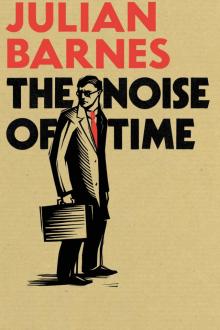 The Noise of Time
The Noise of Time Metroland
Metroland Letters From London
Letters From London Before She Met Me
Before She Met Me Pulse
Pulse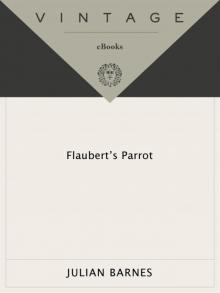 Flaubert's Parrot
Flaubert's Parrot England, England
England, England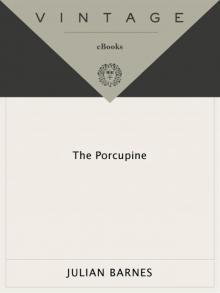 The Porcupine
The Porcupine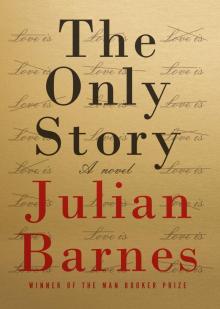 The Only Story
The Only Story Love, Etc
Love, Etc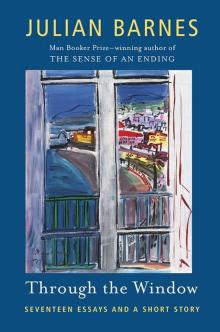 Through the Window: Seventeen Essays and a Short Story
Through the Window: Seventeen Essays and a Short Story Staring at the Sun
Staring at the Sun Cross Channel
Cross Channel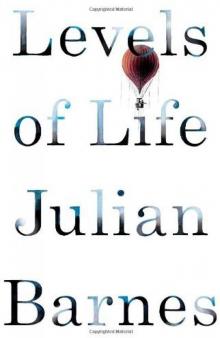 Levels of Life
Levels of Life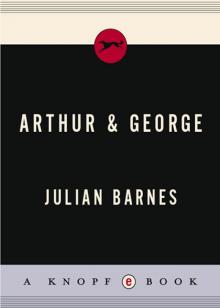 Arthur & George
Arthur & George Love, Etc.
Love, Etc. A History of the World in 10 1/2 Chapters
A History of the World in 10 1/2 Chapters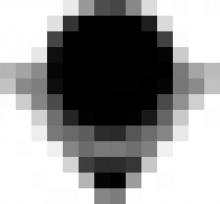 Something to Declare
Something to Declare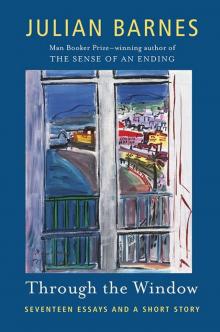 Through the Window: Seventeen Essays and a Short Story (Vintage International)
Through the Window: Seventeen Essays and a Short Story (Vintage International)